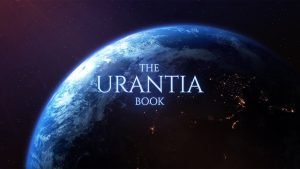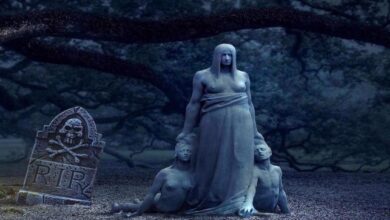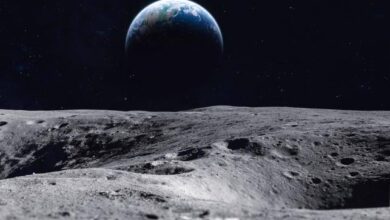best book ever written has no human author

 The Urantia Book, a tome of spiritual, philosophical, and religious thought, presents itself as a profound narrative that transcends conventional boundaries of belief and knowledge.
The Urantia Book, a tome of spiritual, philosophical, and religious thought, presents itself as a profound narrative that transcends conventional boundaries of belief and knowledge.
Originating in the early 20th century, this work claims to be the product of celestial beings, offering an expanded view of the cosmos, the nature of divinity, and the role of humanity within the grand scheme of existence.
The actual authorship remains a matter of debate, though it has been noted that it appears to have plagiarized multiple sources, without attribution. It received various degrees of interest ranging from praise to criticism for its religious and science-related content, its unusual length, and the unusual names and origins of the authors named within the book.
At the heart of The Urantia Book is the quest for unity among the diverse fields of human inquiry. It attempts to harmonize religion, science, and philosophy into a coherent worldview, suggesting that these disciplines are not disparate threads but part of a single tapestry of truth.

The book’s title, “Urantia,” refers to Earth, as the name of the planet Earth and states that its intent is to “present enlarged concepts and advanced truth.”
The philosophical underpinnings of The Urantia Book are as ambitious as they are controversial. It posits a universe teeming with life, governed by a complex hierarchy of celestial beings, each playing a role in the administration of cosmic order. At the pinnacle of this hierarchy is the concept of God, depicted as an all-encompassing source of love and the ultimate architect of the universe.
According to The Urantia Book, the celestial beings are organized into a structured society, much like the human societal structures we are familiar with, but on a cosmic scale. These beings range from high-order personalities such as the Paradise Deities to various orders of angels and other ministering spirits.
At the apex of this celestial hierarchy are the Paradise Deities, comprising the Universal Father, the Eternal Son, and the Infinite Spirit. These entities represent the ultimate authority in the universe and are the source of all creation.

Below the Paradise Deities are the Master Spirits and the Ancients of Days, who govern the seven superuniverses. Each superuniverse is further divided into local universes, each overseen by a Creator Son and a Creative Mother Spirit. These local universes are the fundamental administrative units of the grand universe, where evolutionary planets like Urantia (Earth) are situated.
The Urantia Book also introduces the concept of the Celestial Artisans, a unique order of composite personalities who are the master artists and artisans of the morontia (a state between the material and the spiritual) and lower spirit realms. These artisans are responsible for the morontia embellishment and spiritual beautification across the grand universe.
The celestial artisans are not created as such; they are a selected and recruited corps composed of teacher personalities from the central universe and their volunteer pupils, which include ascending mortals and other celestial groups. They are commissioned in seven major divisions of activity, including celestial musicians, heavenly reproducers, divine builders, thought recorders, and energy manipulators.
The Urantia Book’s portrayal of celestial beings offers a rich tapestry of spiritual entities, each contributing to the cosmic plan and the spiritual progress of the universe’s inhabitants. These beings are depicted as both administrators of cosmic law and loving guides for the evolutionary creatures ascending towards divine perfection.

For those who delve into the pages of The Urantia Book, the celestial hierarchy provides a framework for understanding the vast and interconnected universe. It paints a picture of a well-ordered cosmos, guided by benevolent and wise beings, working in harmony towards the fulfillment of a divine purpose.
One of the most compelling aspects of The Urantia Book is its detailed account of the life and teachings of Jesus, presented as a restatement of his mission and message. This portrayal seeks to strip away centuries of doctrinal accretion, presenting a Jesus who is both divine and human, a figure who embodies the highest ideals of love and service.
The final paper states:
To “follow Jesus” means to personally share his religious faith and to enter into the spirit of the Master’s life of unselfish service for man. One of the most important things in human living is to find out what Jesus believed, to discover his ideals, and to strive for the achievement of his exalted life purpose. Of all human knowledge, that which is of greatest value is to know the religious life of Jesus and how he lived it.
The Urantia Book’s approach to cosmology is equally bold, offering explanations for the origin and structure of the universe that intertwine spiritual insight with speculative science. It speaks of a vast and orderly cosmos, where planets evolve and civilizations rise, each contributing to an ever-unfolding divine plan.

There are some interesting scientific ideas propounded but are expressed as facts and not theory. The authors of the book also state that “factual” truth is relative and may change dependent on where scientific knowledge happens to be.
The Urantia Book mentions the following:
Electrons were made up of 100 smaller units of sub atomic matter called “ultimatons” , and describes their orbits and spins. When I was studying physics and chemistry in high school the smallest particle was the electron. Followed years later by muons, mesons, and quarks. I think they are still searching for the even smaller particles. I believe that quarks (up down strange spin charm etc) are about 6 times larger than an”ultimaton” .
We all know about the “big bang” theory. Rather simplistic idea but fits in with our observations that the stars all have a “red shift” and compares it the Doppler effect but applied to light. The Urantia Book speaks of our universe as a dynamic living creation and that the pulsating nature of it as “space respiration” and that we are at the tail end of a 1 billion year expansion cycle, to be followed by a 1 billion year contraction cycle.
Astrophysicist are today trying to understand the relative motions of local galaxies and other seemingly odd movements and interactions of celestial bodies. Hence “black holes” . The Urantia Book describes vast “dark gravity bodies” whose density is so great that light cannot escape it. It’s purpose is to maintain a counterbalance to all material creation.
The 2100+ page tome was completed in 1934 but not published until 1955. It is considered by some to be “an anthology of cosmological works”.
Critics of The Urantia Book have raised questions about its authorship and the veracity of its claims. The text’s origins are shrouded in mystery, attributed to anonymous sources and lacking clear historical documentation. Moreover, some have pointed out similarities between its content and earlier theological and philosophical works, sparking debates about originality and intellectual integrity.
Despite these controversies, The Urantia Book has garnered a dedicated following, with readers finding in its pages a source of inspiration and a call to personal spiritual growth. Its vision of a universe filled with meaning and purpose resonates with those who seek a deeper understanding of existence and their place within it.
Here’s what Mark Wilson said about this book: “I have read the whole book several times, and will continue to read it until I leave this good world. The authors so touchingly and brilliantly explain the science involved in the construction of the universe, its organization, and development.
“The language used to explain the spiritual aspects of being a human transcend anything present on this planet thus far, in my opinion. I feel as if I am being gently led by both hands over the unsure path of terrestrial living without being pushed or demanded to be subservient.
“I feel empowered to share siblinghood with vast orders of beings, much as I feel honored to live among various cultures on Earth. It is nice to have an authoritative voice that speaks without rhetoric, but instead appeals to common sense.”
For those who wish to explore The Urantia Book further, the text is available for study and contemplation, inviting readers to embark on a journey of discovery that spans the breadth of space and the depths of the human experience.




